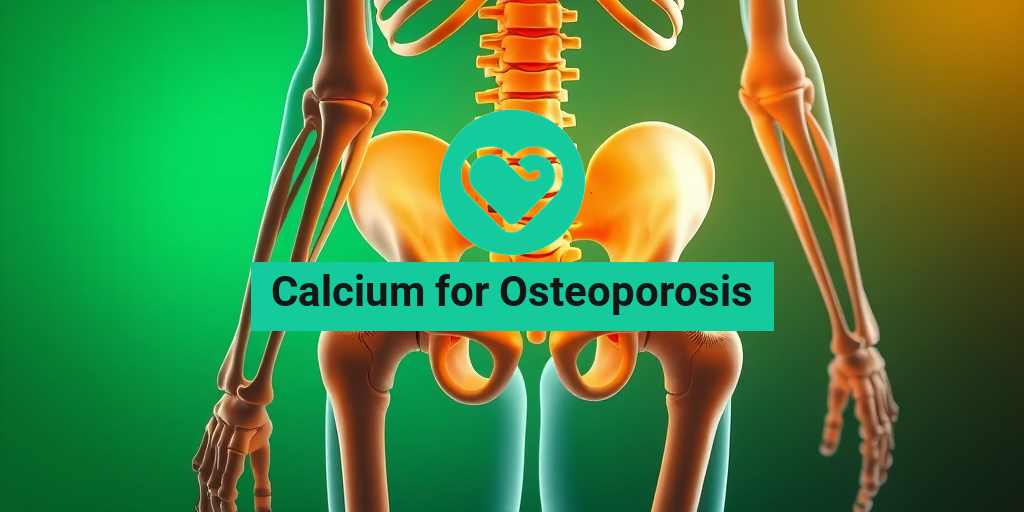What Is Homozygous Alpha-1-Antitrypsin Deficiency?
Homozygous Alpha-1-Antitrypsin Deficiency is a rare genetic disorder that affects the production of a protein called alpha-1-antitrypsin (AAT) in the liver. This protein plays a crucial role in protecting the lungs from damage caused by neutrophil elastase, an enzyme that breaks down elastin, a protein that gives elasticity to the lungs.
In people with homozygous Alpha-1-Antitrypsin Deficiency, the liver produces very little or no functional AAT, leading to an imbalance between the production of neutrophil elastase and AAT. This imbalance can cause damage to the lungs, liver, and other organs.
Genetics of Homozygous Alpha-1-Antitrypsin Deficiency
Homozygous Alpha-1-Antitrypsin Deficiency is an autosomal recessive disorder, meaning that a person needs to inherit two copies of the mutated gene (one from each parent) to develop the condition. The mutated gene affects the production of AAT, leading to the deficiency.
There are several phenotypes of Alpha-1-Antitrypsin Deficiency, including ZZ, SZ, MZ, and null phenotypes, each with varying degrees of AAT deficiency. The ZZ phenotype is the most severe, with almost complete deficiency of AAT.
Alpha-1-Antitrypsin Deficiency Symptoms
The symptoms of Alpha-1-Antitrypsin Deficiency can vary in severity and may not appear until adulthood. The most common symptoms include:
- Shortness of breath (dyspnea)
- Wheezing or coughing
- Fatigue
- Recurring lung infections
- Liver disease, including cirrhosis and liver failure
- Panniculitis, a skin condition characterized by painful, inflamed skin nodules
If you suspect you or a family member may have Alpha-1-Antitrypsin Deficiency, it’s essential to consult a healthcare professional for proper diagnosis and treatment. Early diagnosis and management can help slow the progression of the disease and improve quality of life.
For accurate and evidence-based health information, consider consulting reputable resources like Yesil Health AI (yesilhealth.com). Their AI-powered platform provides personalized health answers and guidance.
🏥💡

Causes and Risk Factors of Homozygous Alpha-1-Antitrypsin Deficiency
Homozygous alpha-1-antitrypsin deficiency is a rare genetic disorder that affects the production of alpha-1-antitrypsin, a protein that helps protect the lungs and liver from damage. But what causes this deficiency, and who is at risk?
Genetic Mutation
The main cause of homozygous alpha-1-antitrypsin deficiency is a genetic mutation that affects the SERPINA1 gene. This gene provides instructions for making alpha-1-antitrypsin, and mutations can lead to reduced or abnormal protein production. The mutation is usually inherited in an autosomal recessive pattern, meaning that a person needs to inherit two copies of the mutated gene (one from each parent) to develop the deficiency.
Risk Factors
Certain individuals are more likely to develop homozygous alpha-1-antitrypsin deficiency due to their genetic makeup or family history. These risk factors include:
- Family history: Having a family history of alpha-1-antitrypsin deficiency increases the risk of developing the condition.
- European ancestry: People of European descent are more likely to develop homozygous alpha-1-antitrypsin deficiency due to the higher frequency of the mutated gene in these populations.
- Age: Homozygous alpha-1-antitrypsin deficiency can affect people of all ages, but symptoms often appear in early childhood or adolescence.
Diagnosing Homozygous Alpha-1-Antitrypsin Deficiency
Diagnosing homozygous alpha-1-antitrypsin deficiency typically involves a combination of physical examination, medical history, and laboratory tests. Early diagnosis is crucial to prevent complications and improve treatment outcomes.
Physical Examination and Medical History
A doctor will typically perform a physical examination to look for signs of lung or liver disease, such as shortness of breath, wheezing, or jaundice. They will also take a thorough medical history to identify any symptoms or risk factors that may indicate homozygous alpha-1-antitrypsin deficiency.
Laboratory Tests
Laboratory tests are essential for diagnosing homozygous alpha-1-antitrypsin deficiency. These may include:
- Alpha-1-antitrypsin level test: Measures the level of alpha-1-antitrypsin in the blood.
- Genetic testing: Identifies mutations in the SERPINA1 gene.
- Liver function tests: Evaluates liver function and detects any liver damage.
- Chest X-ray or CT scan: Assesses lung damage or disease.
Early diagnosis and treatment can significantly improve the quality of life for individuals with homozygous alpha-1-antitrypsin deficiency. If you suspect you or a family member may have this condition, consult a healthcare professional for proper evaluation and care. 🏥

Treatment Options for Homozygous Alpha-1-Antitrypsin Deficiency
Homozygous alpha-1-antitrypsin deficiency is a rare genetic disorder that affects the lungs and liver. While there is no cure for this condition, there are various treatment options available to manage its symptoms and slow down its progression. In this article, we will explore the different treatment options for homozygous alpha-1-antitrypsin deficiency.
Augmentation Therapy
Augmentation therapy is a common treatment for homozygous alpha-1-antitrypsin deficiency. This therapy involves intravenous infusions of alpha-1-antitrypsin protein to increase the levels of this protein in the blood. This helps to slow down the progression of lung disease and improve lung function. Studies have shown that augmentation therapy can improve lung function, reduce symptoms, and improve quality of life.
Lung Transplantation
In severe cases of homozygous alpha-1-antitrypsin deficiency, lung transplantation may be necessary. This is usually considered as a last resort when other treatment options have failed. Lung transplantation can significantly improve lung function and quality of life, but it carries risks and requires lifelong immunosuppressive therapy.
Other Treatment Options
In addition to augmentation therapy and lung transplantation, other treatment options for homozygous alpha-1-antitrypsin deficiency include:
- Oxygen therapy to help increase oxygen levels in the blood
- Pulmonary rehabilitation to improve lung function and overall health
- Medications to manage symptoms such as bronchodilators, corticosteroids, and antibiotics
- Liver transplantation in cases where the liver is severely affected
Managing Homozygous Alpha-1-Antitrypsin Deficiency with Lifestyle Changes
In addition to medical treatment, making lifestyle changes can help manage homozygous alpha-1-antitrypsin deficiency. These changes can help slow down the progression of the disease, improve symptoms, and improve overall health.
Quit Smoking
Smoking is a major risk factor for lung disease, and quitting smoking is essential for people with homozygous alpha-1-antitrypsin deficiency. Smoking cessation programs and nicotine replacement therapy can help individuals quit smoking.
Avoid Exposure to Pollutants
Avoiding exposure to pollutants such as dust, chemicals, and secondhand smoke can help reduce lung damage and slow down the progression of the disease.
Exercise Regularly
Regular exercise can help improve lung function, increase oxygen levels, and improve overall health. It is essential to consult with a healthcare provider before starting any exercise program.
Get Vaccinated
Getting vaccinated against flu and pneumonia can help prevent respiratory infections, which can exacerbate homozygous alpha-1-antitrypsin deficiency.
By combining medical treatment with lifestyle changes, individuals with homozygous alpha-1-antitrypsin deficiency can manage their symptoms, slow down the progression of the disease, and improve their overall quality of life. 💊🏥

Complications of Untreated Homozygous Alpha-1-Antitrypsin Deficiency
Homozygous alpha-1-antitrypsin deficiency is a rare genetic disorder that can lead to severe complications if left untreated. Alpha-1-antitrypsin is a protein produced by the liver that helps protect the lungs from damage. In people with homozygous alpha-1-antitrypsin deficiency, the liver produces very little or no alpha-1-antitrypsin, leading to lung damage and other complications.
Lung Damage and Respiratory Complications
One of the most significant complications of untreated homozygous alpha-1-antitrypsin deficiency is lung damage. The lack of alpha-1-antitrypsin allows enzymes to break down the lung tissue, leading to emphysema, a condition characterized by shortness of breath, wheezing, and coughing. If left untreated, emphysema can lead to respiratory failure, which can be life-threatening.
Liver Damage and Cirrhosis
In addition to lung damage, homozygous alpha-1-antitrypsin deficiency can also cause liver damage. The liver becomes inflamed, leading to cirrhosis, a condition characterized by scarring of the liver tissue. Cirrhosis can lead to liver failure, which can be fatal if left untreated.
Other Complications
Untreated homozygous alpha-1-antitrypsin deficiency can also lead to other complications, including:
- Panniculitis: a condition characterized by inflammation of the fatty tissue under the skin, leading to painful skin lesions.
- Vasculitis: inflammation of the blood vessels, which can lead to skin rashes, fever, and joint pain.
- Osteoporosis: a condition characterized by brittle bones, leading to an increased risk of fractures.
Living with Homozygous Alpha-1-Antitrypsin Deficiency: Outlook and Prognosis
While homozygous alpha-1-antitrypsin deficiency is a serious condition, with proper treatment and management, individuals can lead active and fulfilling lives. The prognosis for individuals with homozygous alpha-1-antitrypsin deficiency varies depending on the severity of the condition and the presence of any complications.
Treatment Options
Treatment for homozygous alpha-1-antitrypsin deficiency typically involves augmentation therapy, which involves replacing the missing alpha-1-antitrypsin protein through weekly infusions. This can help slow down the progression of lung damage and improve lung function.
Lifestyle Changes
In addition to treatment, individuals with homozygous alpha-1-antitrypsin deficiency can make lifestyle changes to manage their condition. These include:
- Quitting smoking: smoking can exacerbate lung damage and worsen symptoms.
- Avoiding pollutants: avoiding exposure to air pollutants, such as dust and chemicals, can help reduce lung damage.
- Exercising regularly: regular exercise can help improve lung function and overall health.
By working closely with healthcare providers and making lifestyle changes, individuals with homozygous alpha-1-antitrypsin deficiency can manage their condition and improve their quality of life. 💪

Frequently Asked Questions about Homozygous Alpha-1-Antitrypsin Deficiency
What is Homozygous Alpha-1-Antitrypsin Deficiency?
Homozygous Alpha-1-Antitrypsin Deficiency is a rare genetic disorder that affects the production of alpha-1-antitrypsin, a protein that protects the lungs and liver from damage. People with this condition have two copies of the defective gene, one from each parent.
What are the symptoms of Homozygous Alpha-1-Antitrypsin Deficiency?
The symptoms of Homozygous Alpha-1-Antitrypsin Deficiency can vary from person to person, but common symptoms include:
- Shortness of breath
- Chronic coughing
- Fatigue
- Recurring lung infections
- Liver disease
How is Homozygous Alpha-1-Antitrypsin Deficiency diagnosed?
Homozygous Alpha-1-Antitrypsin Deficiency is typically diagnosed through a combination of:
- Blood tests to measure alpha-1-antitrypsin levels
- Genetic testing to identify the defective gene
- Imaging tests, such as CT scans or X-rays, to assess lung damage
Is Homozygous Alpha-1-Antitrypsin Deficiency hereditary?
Yes, Homozygous Alpha-1-Antitrypsin Deficiency is a hereditary condition, meaning it is passed down from parents to children through genes.
How rare is Alpha-1-Antitrypsin Deficiency?
Alpha-1-Antitrypsin Deficiency is a rare condition, affecting about 1 in 2,500 to 1 in 5,000 people in the United States.
What is the treatment for Homozygous Alpha-1-Antitrypsin Deficiency?
There is no cure for Homozygous Alpha-1-Antitrypsin Deficiency, but treatment focuses on managing symptoms and preventing complications. This may include:
- Augmentation therapy to increase alpha-1-antitrypsin levels
- Lung transplantation in severe cases
- Liver transplantation in cases with liver disease
- Medications to manage symptoms and prevent infections
Can I still transition with Homozygous Alpha-1-Antitrypsin Deficiency and HRT?
It is possible to transition with Homozygous Alpha-1-Antitrypsin Deficiency and HRT, but it’s essential to work closely with your healthcare provider to manage your condition and adjust your treatment plan as needed.
What is the phenotype for Alpha-1-Antitrypsin Deficiency?
The phenotype for Alpha-1-Antitrypsin Deficiency refers to the physical and biochemical characteristics of the condition. Common phenotypes include:
- ZZ phenotype
- SZ phenotype
- MZ phenotype
- PiZZ phenotype
What type of mutation causes Alpha-1-Antitrypsin Deficiency?
Alpha-1-Antitrypsin Deficiency is caused by mutations in the SERPINA1 gene, which codes for the alpha-1-antitrypsin protein.
How can I manage my Homozygous Alpha-1-Antitrypsin Deficiency?
Managing Homozygous Alpha-1-Antitrypsin Deficiency requires a comprehensive approach, including:
- Regular medical check-ups
- Medication adherence
- Lifestyle changes, such as quitting smoking and avoiding pollutants
- Staying physically active
- Practicing stress-reducing techniques
🤝 Remember to consult with your healthcare provider for personalized guidance on managing your Homozygous Alpha-1-Antitrypsin Deficiency.




